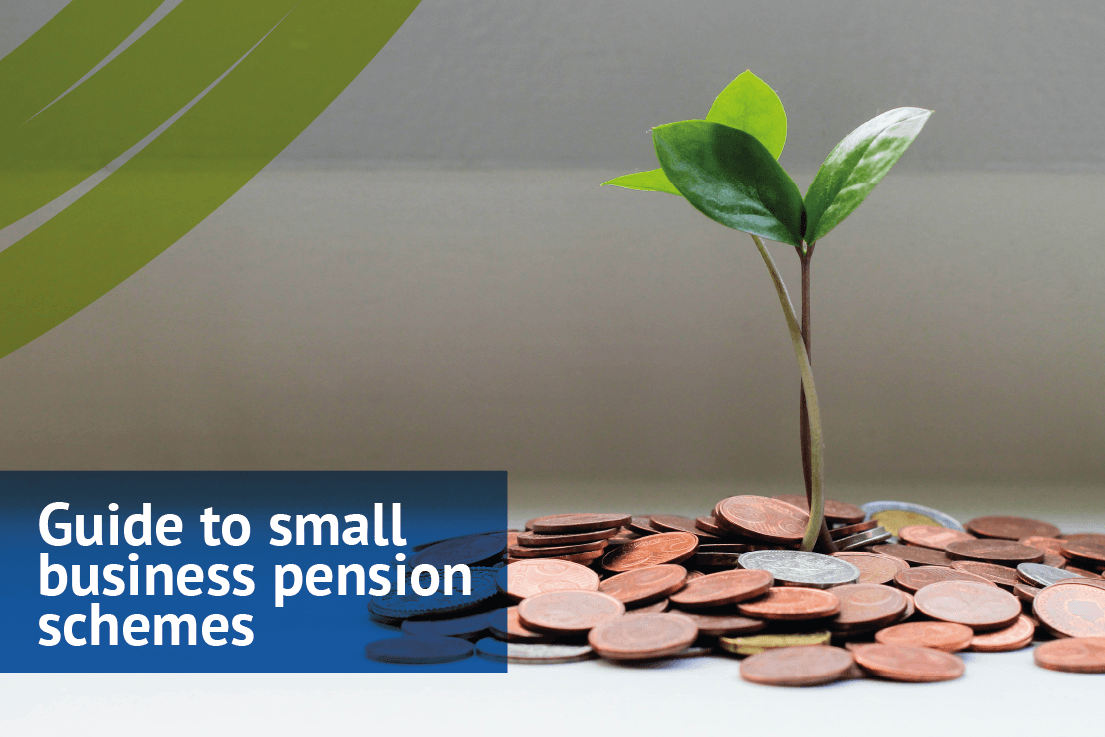Guide to small business pension schemes
23rd June 2021
What are your responsibilities as a small business owner?
As an employer, it is best to do your financial planning ahead of time as so to provide your staff members with the best options. This includes planning about which pension scheme is best for you. Along with other legal duties such as health and safety, contribution toward a pension is also a legal requirement. Most of the time, employees are eligible for ‘Automatic enrolment’, which starts on the first date of employment. These requirements are employees who:
- are aged between 22 and the state pension age
- earn at least £10,000 a year
The government also provides a good resource to find out what you need to do specifically for your business and the timescales needed when conducting financial planning on your small business.
When your employees retire, there are normally two options. Payment of cash (25% of which is tax-free) or receive a regular income paid in instalments.
If you already have an existing business but do not participate in automatic enrolment, it is your duty to re-enroll staff into the automatic pension scheme and failure to do so can result in a fine. If you have already participated in it in the past but the staff has left to chosen to reduce their contributions you must also complete a re-declaration of compliance to notify how you have met your duties as an employer.
How much do I pay in small business pension schemes?
If all the above criteria have been met, employers can now start contributing to their staff’s pension scheme.
As an employer, you must pay at least 3% of your employees ‘qualifying earnings’. This is the band of earnings used to calculate the amount required to contribute for auto-enrolment. In your chosen pension scheme it is important to find out what counts as earnings as the figure tends to review on a yearly basis under government guidelines. Under most guidelines these earning include:
- Salary or wages
- Bonuses and Commission
- Overtime
- Statutory sick pay
- Statutory pay someone receives during paternity, maternity, or any other kind of family leave
- Adoption pay
- Holiday pay
These contributions are deducted from your employees’ salaries on a monthly basis. You will also be required to pay it into the pension scheme by the 22nd of the next month, if not, you may be fined for late payment.
Choosing the right pension scheme for your small business
As both you and your staff pay money towards your employee’s retirement, it is important to assess the different schemes.
You’ll need to choose a pension scheme that is set up for automatic enrolment. This can be done either with the help of your accountants or done independently. Some popular schemes for small business include
When assessing their features, be sure to look for costs and how the payments are distributed. Some schemes may also have an exit fee. The different options may also have varying rates for different paid staff so be sure to be aware of the options. Keeping records is also essential and part of your legal duties as an employer. This includes
- The names and addresses of staff enrolled
- When contributions are paid in
- All requests to join or leave your pension scheme
You should also keep track of your employees’ ages and wages so that you may enroll them as soon as they become eligible.
Businesses looking for advice on particular pension schemes for small businesses can utilise companies such as Key Wealth Management who can advise you on specific financial advice regarding situation change.
Small Self Administered Scheme (SSAS)
This type of unique pension scheme is a defined contribution workplace pension, which is beneficial if you want flexibility. This can include investing in assets that aren’t widely available on generic schemes, such as the purchasing of business property. The borrowing of money is also possible through this scheme, as so to lend money back to the business and purchase the companies shares.
Some other benefits of SSAS include:
- Unlimited employer contributions
- The ability to hold up to 5% of shares in the parent company
- The ability to lend up to 50% of the scheme’s assets to the employer
Things to look out for
There have been a couple of recent announcements in relation to small business pension schemes.
In June 2021, reports circulated regarding a raid on retirement saving incentives to help pay for COVID. This will include lowering the pension’s lifetime allowance from just over £1 million to around £800,000. Anything above that allowance will be taxed at 55% if taking out as a lump sum.
Another key issue for small businesses to be aware of is Disguised Remuneration: a tactic used by companies to avoid tax using unfunded pension arrangements. HMRC is beginning to crack down on unusual tax activities that suggest the pension is never likely to be paid. This could result in a penalty for submitting an inaccurate tax return to HMRC.
Talk to the experts
We understand small business pension schemes are difficult to understand, especially when starting a new business. If you have questions on which scheme is right for you and the benefits of different providers, please don’t hesitate to get in touch with our Tyne and Wear-based team.





